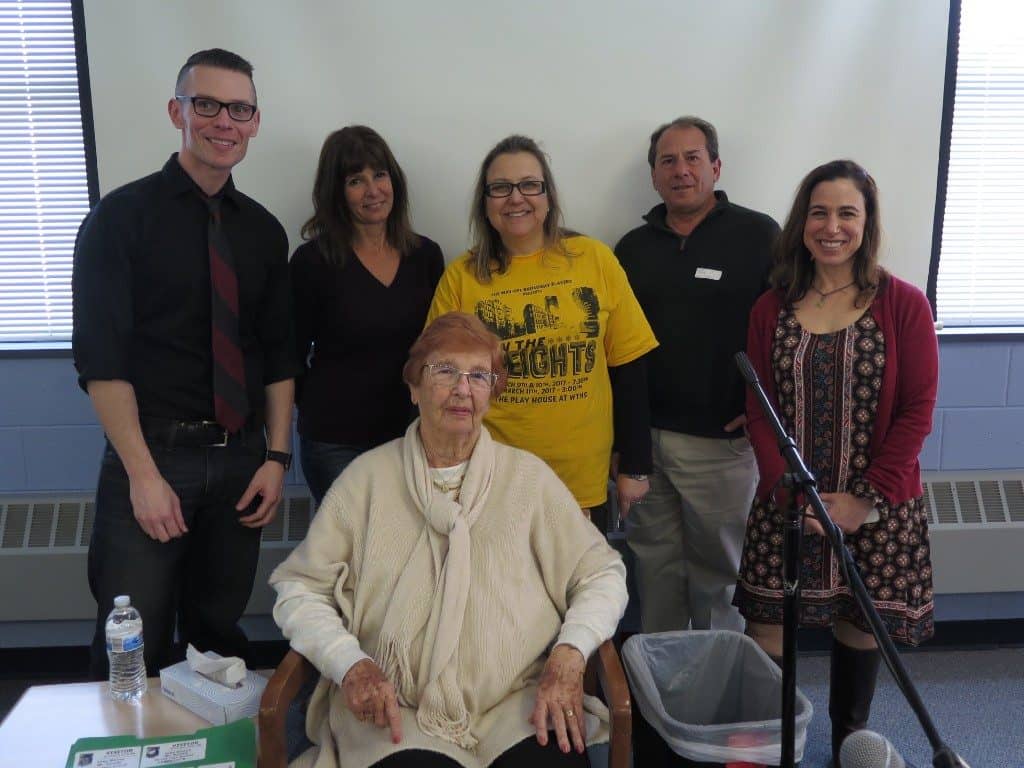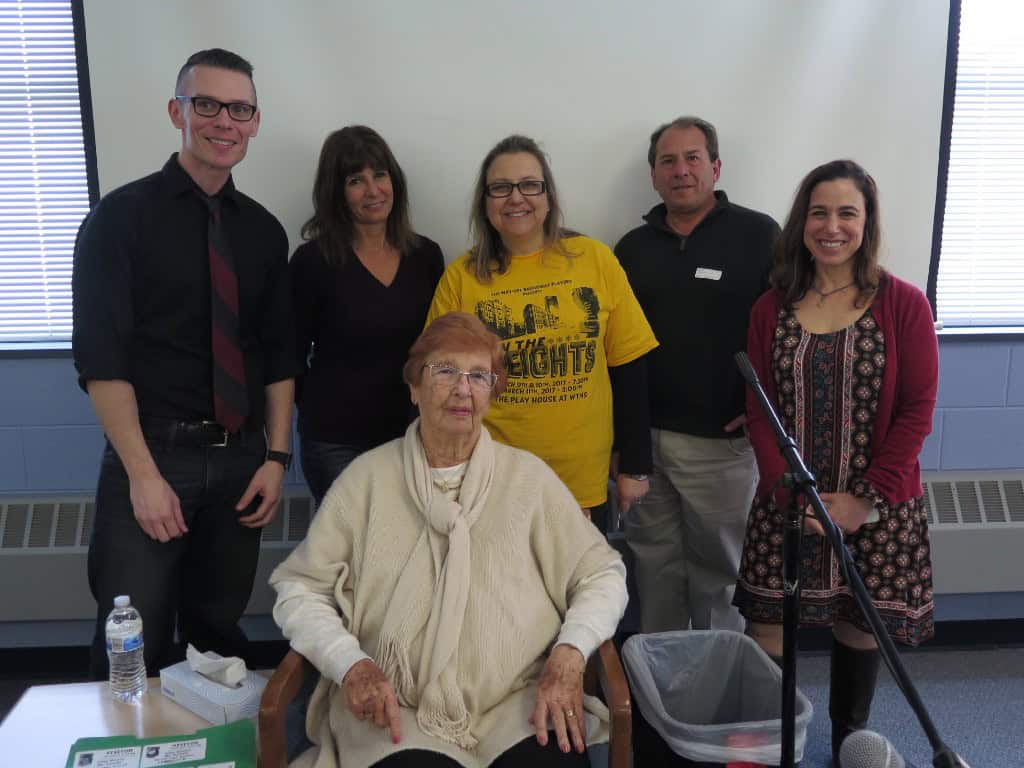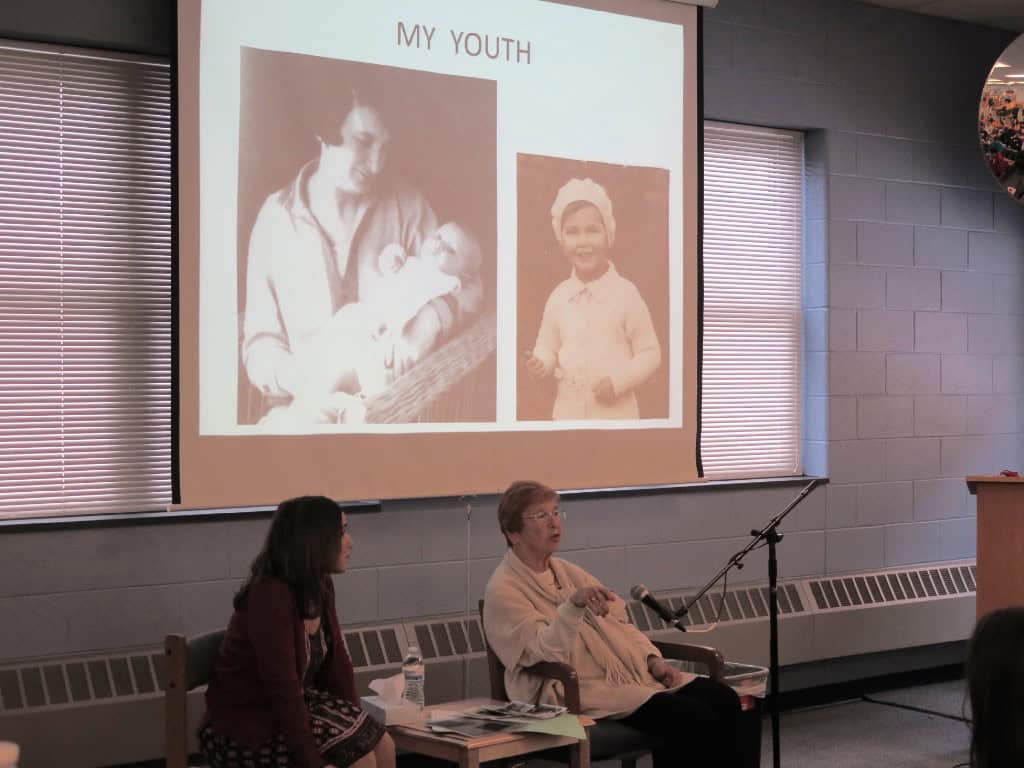
Helga Arndtheim Melmed told her story of Auschwitz and Adolf Hitler to high school English students

As 89-year-old Holocaust survivor Helga Arndtheim Melmed recounted to Washington Township High School English students, an onion was the best gift she ever received in her life. It was a gift on her 13th birthday. She will remember it always.
After surviving on coffee grinds, potato peels and a little bit of flour that her mother molded into patties and fried as sustenance for her daughter when both were held in a Nazi labor camp in Poland, Melmed’s mother managed to present an onion that her daughter had longed for to improve the taste of the little food that they had. That same day, her mother passed away.

Melmed shared still-vivid stories of her normal childhood with her parents in Berlin before Adolf Hitler came to power in 1933 with students in Abby Molotsky and Kevin MacNamara’s classes on March 10. She also shared the horrific things that she experienced thereafter, as she and her parents were rounded up on cattle cars with thousands of other Jewish people and forced into hard labor at various camps. Following the death of both of her parents, Melmed eventually wound up in Auschwitz.
“We were bunked in a big stable, four to five girls in a row, next to the building that housed the gas ovens,” she recalled. “We smelled the flesh from the gas ovens burning. I can still smell that smell, that horrible flesh-burning smell.”
Melmed was spared death at Auschwitz and relocated to Hamburg, Germany, to a labor camp, where she performed hard labor until the end of World War II. She eventually was found, at age 18 and weighing just 46 pounds, by British and American soldiers and subsequently hospitalized in Sweden for 18 months for treatment of typhoid fever and tuberculosis. Following release from the hospital, she was welcomed into a Swedish family where she remained for three years before reuniting with her mother’s sister in New York City.
“As a child, I didn’t understand what was happening, but I grew up very rapidly in the Nazi circumstances,” Melmed said. “I went through all sorts of hatred. I am here to tell you what discrimination, disrespect and violence can lead to and how important it is to accept people who are different than you.”









